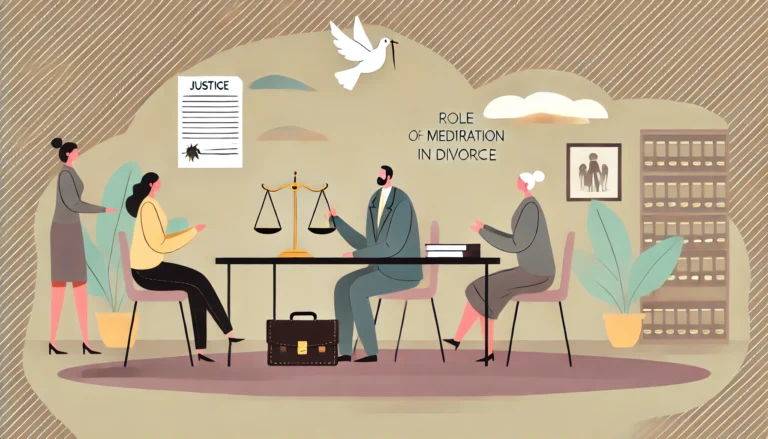Mediation is a valuable tool in divorce proceedings, offering an alternative to traditional court litigation. It involves a neutral third party, the mediator, who helps couples negotiate and reach agreements on various aspects of their divorce. Here’s a closer look at the role of mediation in divorce and the benefits and considerations involved:
Understanding the Mediation Process
Mediation is a structured process where both parties meet with a mediator to discuss and resolve issues related to their divorce, such as property division, child custody, and support arrangements. The mediator facilitates communication, helps clarify points of disagreement, and works to guide the parties toward a mutually acceptable agreement.
Benefits of Mediation
Mediation offers several benefits over traditional divorce litigation. It is generally less adversarial, which can reduce conflict and stress for both parties. Mediation is often faster and more cost-effective than going to court, saving both time and money. Additionally, mediation allows couples to have more control over the outcome, as they work together to create solutions that work for their unique situation.
Maintaining Privacy and Confidentiality
One of the significant advantages of mediation is that it is a private process. Unlike court proceedings, which are public, mediation sessions are confidential. This privacy can be particularly important for couples who prefer to keep their personal matters out of the public eye. The confidentiality of mediation encourages open communication and honest discussions.
Improving Communication and Cooperation
Mediation fosters a collaborative environment where both parties are encouraged to communicate openly and respectfully. This can be especially beneficial when children are involved, as it sets a positive tone for co-parenting. Mediation helps build a foundation for cooperation and constructive communication, which can continue long after the divorce is finalized.
Focusing on the Best Interests of Children
Mediation allows parents to work together to create custody and visitation arrangements that are in the best interests of their children. Rather than having a judge make decisions about custody, parents can tailor their agreements to meet their children’s needs and schedules. This focus on the family can lead to more satisfactory and workable arrangements.
Flexibility in Reaching Agreements
Mediation offers flexibility that is not always available in court proceedings. Couples can address a wide range of issues, including creative solutions that a court might not consider. This flexibility allows for personalized agreements that better reflect the specific circumstances and priorities of both parties.
Mediation as a Voluntary Process
Mediation is typically a voluntary process, meaning both parties must agree to participate. This willingness to engage in mediation can lead to more genuine efforts to resolve disputes. However, it’s important to note that mediation may not be suitable in cases where there is a significant power imbalance or history of abuse.
Potential Challenges of Mediation
While mediation has many benefits, it may not be appropriate for all couples. Challenges can arise if one party is uncooperative or unwilling to compromise. Additionally, without legal representation, parties may agree to terms that are not fully in their best interests. It’s important to have a clear understanding of your rights and to seek legal advice before finalizing any agreements.
Choosing the Right Mediator
The success of mediation largely depends on the skills and experience of the mediator. It’s important to choose a mediator who is trained in family law and has experience handling divorce cases. A good mediator will be impartial, facilitate constructive discussions, and help both parties feel heard and respected throughout the process.
Considering Legal Advice Alongside Mediation
While mediation can be an effective way to resolve divorce disputes, it’s still advisable to consult with a divorce attorney. Legal advice can provide clarity on your rights and ensure that the agreements reached in mediation are fair and legally sound. An attorney can review the final settlement before it is submitted to the court for approval.
Conclusion
Mediation offers a collaborative and flexible approach to resolving divorce disputes, with numerous benefits including reduced conflict, lower costs, and greater control over the outcome. While it may not be suitable for every situation, mediation can be an effective tool for couples willing to work together towards a mutually beneficial resolution. By considering the role of mediation, you can make informed decisions that support a smoother transition through divorce.

